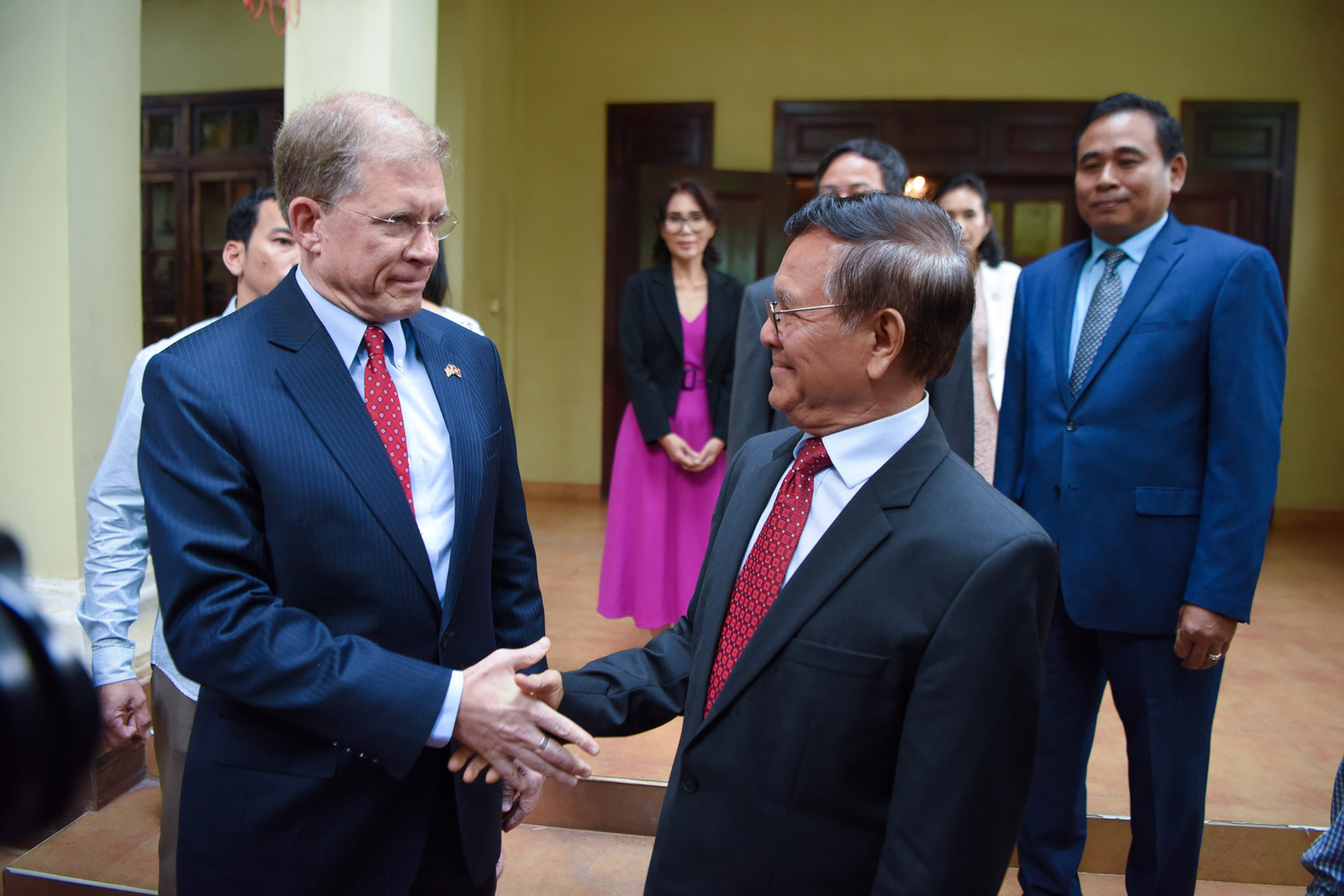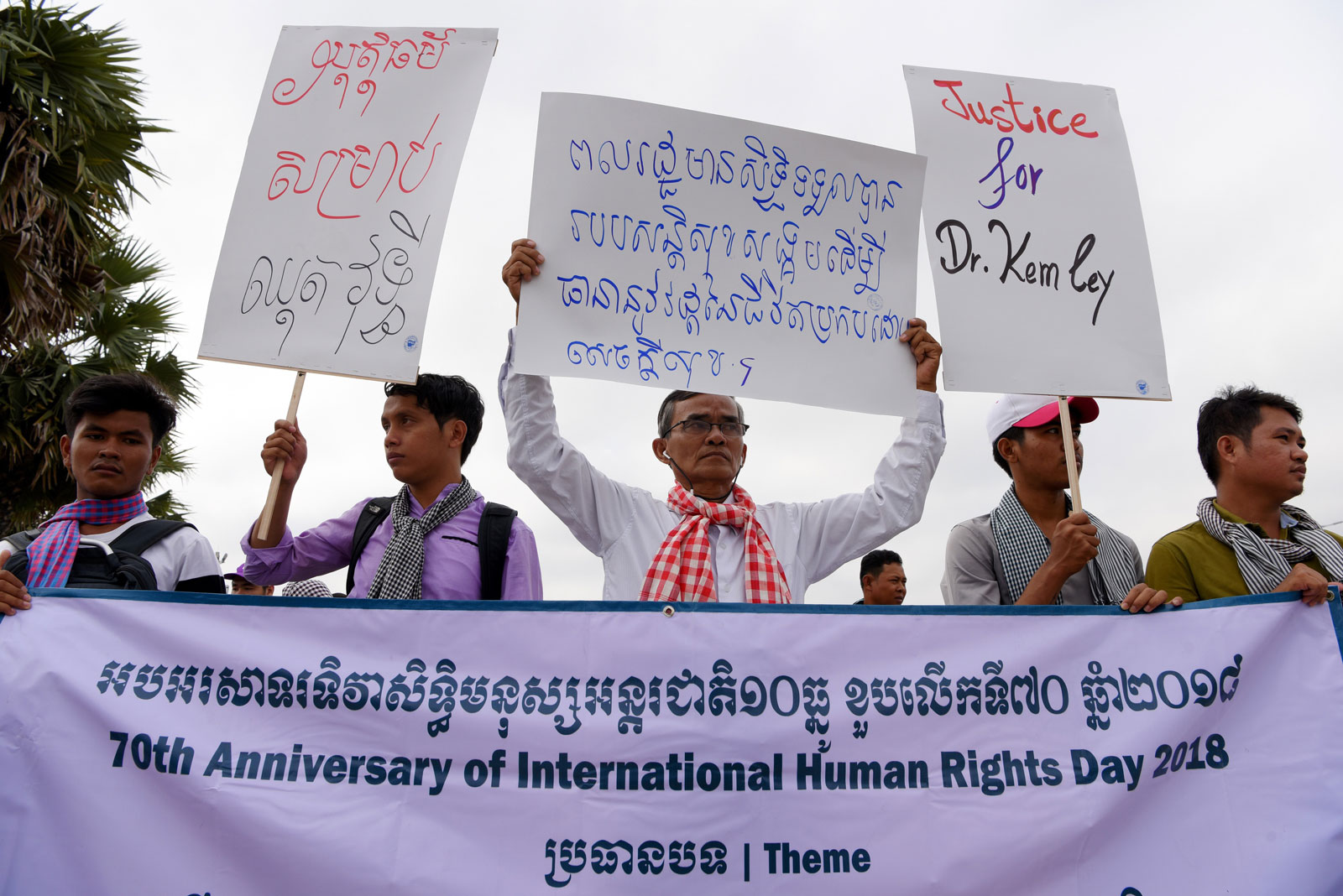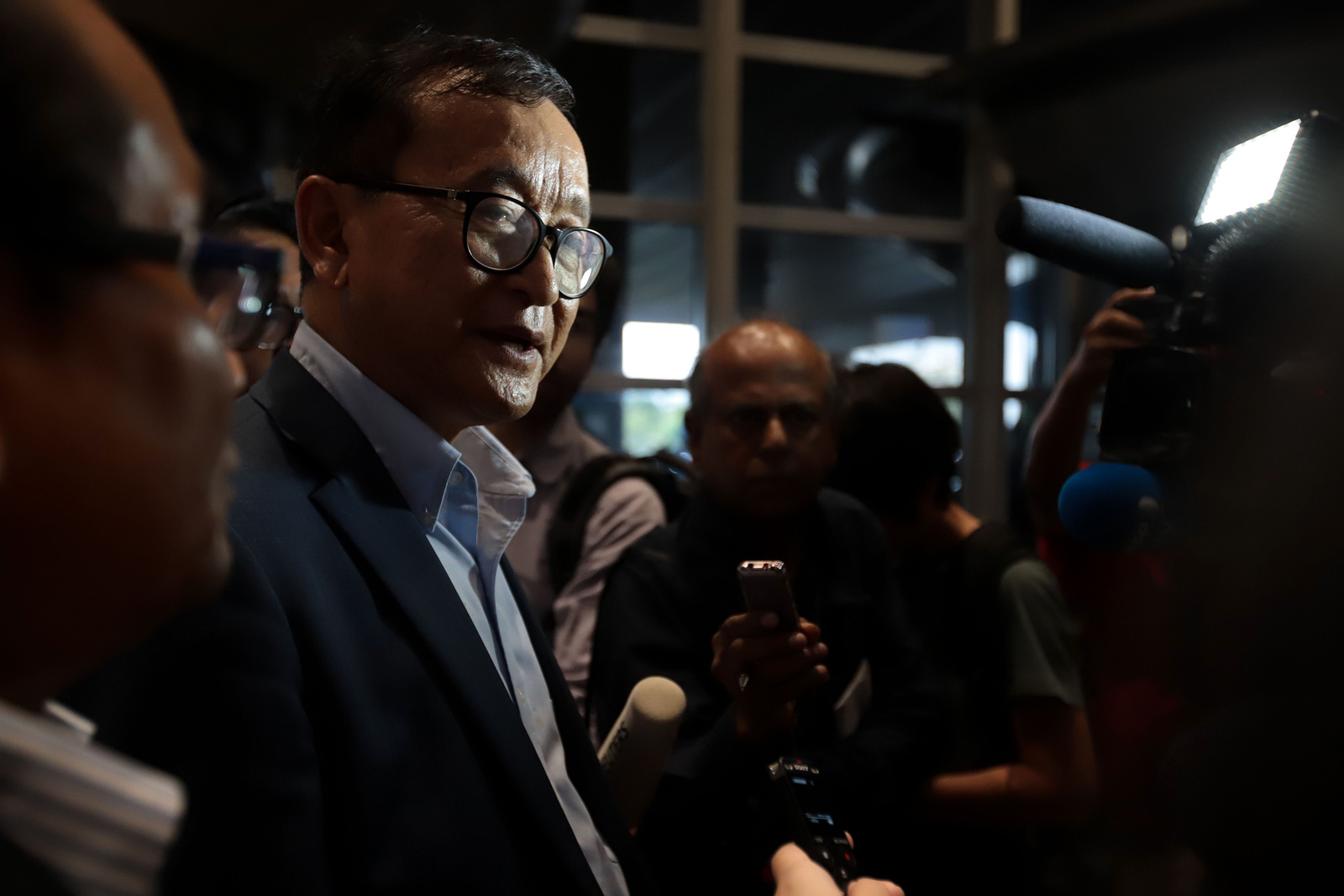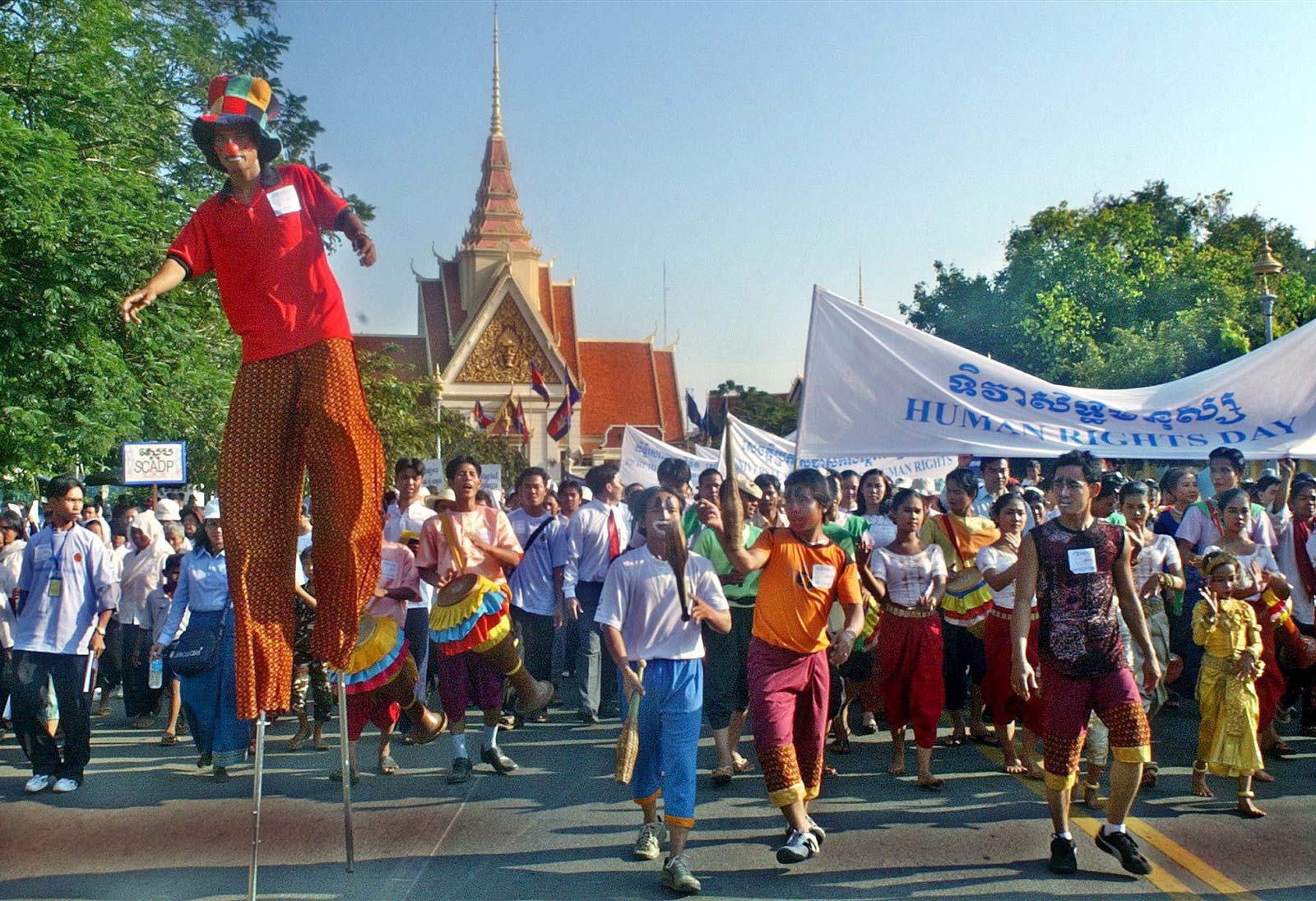On 10 December the United Nations celebrates Human Rights Day, commemorating the adoption of the Universal Declaration of Human Rights in 1948 – the first international document declaring that human rights are inalienable, applying to everyone by virtue of their humanity regardless of their race, colour, religion, sex, language, political opinion, national origin, property, birth or status.
Every year on 10 December, Cambodia marks this occasion by granting a public holiday to its citizens. However, this year will be the last such time. Human Rights Day is on the list of those public holidays to be dropped next year – a fact that is somewhat reflective of the current attitude of the government to the human rights situation in Cambodia. As we celebrate this day, it is therefore a good time to be critical and to remind ourselves of the importance of the values that Universal Declaration on Human Rights embodies and their important place in Cambodian society and history.
In 1991, Cambodia signed the Paris Peace Agreements, bringing an end to decades of conflict and laying the framework for a political settlement rooted in respect for human rights and the rule of law. The agreements set out key principles for governance that were reflected in the Constitution of Cambodia. However, somewhere along the way the state stopped translating these principles into action; the result being that Cambodian citizens do not live the reality promised by the Agreements.

The principles set out in the Agreements include Cambodia following a system of liberal democracy and ensuring an independent judiciary. Creating legally binding obligations for Cambodia, and 18 other signatories, the Agreements specifically stipulated that all persons in Cambodia, including refugees and displaced persons, shall enjoy the rights and freedoms embodied in the Universal Declaration of Human Rights and other international human rights instruments.
Moreover, they included an express undertaking to adhere to relevant international human rights treaties, ensure respect for and observance of human rights and fundamental freedoms, and a commitment to supporting the right of all Cambodian Citizens to undertake activities that promote and protect these freedoms. Poignantly, signatories committed to “ensure that the policies and practices of the past shall never be allowed to return”.
Despite the Agreements and their inclusion in the Constitution, the promises they make are not uniformly upheld.
In November 2017, the Supreme Court dissolved the Cambodia National Rescue Party (CNRP) and banned 118 senior CNRP officials from political activities for five years. A crackdown since August on alleged CNRP affiliates, triggered by the announced return of opposition leader Sam Rainsy, only serves to prove the existence of a sustained assault on any form of political dissent to maintain a de facto one-party state.
It is time that the government hears the voices of its people – and listens. Cambodians should be free to criticise and demand more from their leaders without fear of reprisal
Chak Sopheap, Executive Director of the Cambodian Center for Human Rights
The date of Rainsy’s planned return, 9 November 2019, saw massive military deployment along Cambodia’s border with Thailand and also outside Phnom Penh International Airport. Whilst the government has since released some political prisoners, including giving partial freedom to former-opposition leader Kem Sokha, many still remain unjustly detained. The surge in harassment of those perceived to be affiliated with the CNRP may have subsided with the uneventful passing of 9 November, however political freedom remains unduly restricted across Cambodia.
Violations of freedom of expression are not only limited to the political sphere, independent voices are regularly targeted and silenced. Journalists, human rights defenders, union leaders, community leaders, and civil society organisations (CSOs) have been subjected to increasing judicial and physical harassment. Even ordinary citizens expressing their views on social media have been subjected to arbitrary arrest and detention. The space for individual free expression is seriously diminished, and the free press is almost entirely non-existent.
Poor governance, tit-for-tat politics, weak institutions and systemic corruption are but a few key ingredients that together have allowed for these violations to persist with impunity. Social injustice reigns supreme while the government continues to place the interest of businesses over those of local communities and the environment.

The decision by the EU to initiate a formal monitoring procedure under the Everything But Arms (EBA) Agreement – trade preferences that, if removed, would cost the Cambodian economy as much as $600 million annually – is a clear indicator that the situation is deserving of immediate attention. The European Commission’s preliminary report, delivered in November, reportedly demands action be taken in relation to democratic freedom, labour rights, land titling, press freedom, and political participation if Cambodia is to maintain access to the preferential trading scheme.
The release of Kem Sokha from house arrest, immediately before the receipt of the preliminary report, and the subsequent decision to free numerous jailed CNRP activists on bail in the following days, form part of negotiations with the EU. However, unless the government continues to take corrective measures to address the human rights situation in Cambodia they will remain just this, negotiations; mere bargaining chips in an attempt to maintain access to the scheme, rather than a true commitment to the rule of law and human rights.
Sam Rainsy speaks to members of the media at Kuala Lumpur International Airport in Sepang on 9 November, soon after his earlier failed attempt to board a Thai Airways flight to Bangkok at Paris’ Charles de Gaulle Airport as part of a much-hyped plan to return to Cambodia. Photo: Sadiq Asyraf/AFP

A true commitment involves acknowledging the bigger systemic issues that persist and allow human rights violations and impunity to grow.
It is high time for us to break the political deadlock and allow for a new generation of politicians to enter the arena, opening up opportunities for debate and healthy political competition that could in turn begin a peaceful transition to a pluralistic democracy. A real democracy also needs strong institutions; separation of legislative and judicial powers is a necessary first step in achieving this, and a foundational principle of any democracy. Cambodia ascribed to this when it signed the Paris Peace Agreements.
Lastly, and perhaps most importantly, it is time that the government hears the voices of its people – and listens. Cambodians should be free to criticise and demand more from their leaders without fear of reprisal. We need to ensure the establishment of the foundational principles that modern Cambodia was built on and be reminded of the fact that respecting and protecting human rights is an ongoing duty – not a task to be undertaken only in the event of international pressure.
On Human Rights Day, we call on the government to address the emerging human rights crisis as a matter of urgency, not just because they are obligated to, but because our rights are inherent in our humanity.
Chak Sopheap is the executive director at the Cambodian Center for Human Rights


